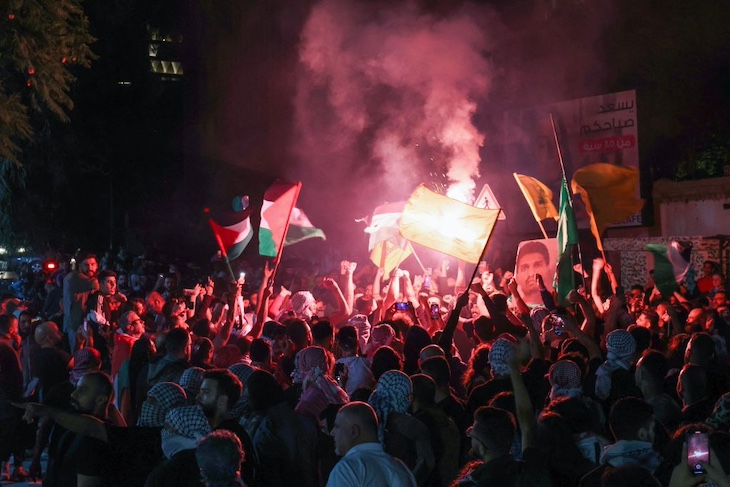When an opportunity came today for Israel to take out the leading Hamas member and head of the Al-Qassam Brigades, Mohammed Deif, it could not afford to pass it up. It’s unclear yet whether Deif was in fact killed in the strike, which took place near the city of Khan Yunis in the Gaza Strip.
Deif is arguably the most elusive Hamas leader. He joined Hamas as a teenager shortly after the organisation was established in 1987, and was arrested by Israel and held for 16 months in 1989. He has since become one of the most powerful and influential figures in the terror organisation and played a pivotal role in turning it into the mighty force it has become.
Mohammed Deif has become one of the most powerful and influential figures in the terror organisation
Deif founded Hamas’s military wing, the Al-Qassam Brigades. He masterminded the establishment of offensive tunnels from Gaza into Israeli territory and the build-up of Hamas’s rocket capabilities. He also orchestrated the 7 October attack in which over 1,200 Israelis and foreign nationals were brutally killed, with some 240 abducted.
Over the years, Deif has managed to survive seven assassination attempts by Israel – although he didn’t emerge unscathed. He has lost an eye and an arm, and sustained serious injuries to his leg. As a high-profile target, Deif has been extremely cautious. He has spent a lot of his time hiding underground, with only a select few knowing his whereabouts at any time. Israel has spent the past nine months feverishly looking for him.
When information came in last night that Deif has finally emerged from his hiding place, it presented Israel with a golden opportunity it couldn’t afford to miss. A decision had to be made quickly. Following a late-night consultation with the IDF Chief of Staff Herzi Halevi and Shein Bet Chief Ronen Barm, Israeli Defence Minister Yoav Gallant gave the go-ahead. The stakes were high, in part because Deif was close to a humanitarian zone. He might have wrongly assumed that this would grant him protection. Hamas claimed that over 100 people were killed in the subsequent strike. Israel has shown footage to indicate that the strike was precise and contained, arguing that most of the casualties were terrorists.
The strike also happened during a crucial time in the negotiations between Hamas and Israel for a deal to release the hostages in return for a ceasefire. Israel is cautiously optimistic that Deif was injured and perhaps killed in today’s attack, alongside the commander of Hamas’s Khan Younis Brigade, Rafa’a Salameh. If he was, this could pressure Hamas’s leader in Gaza, Yahya Sinwar, into agreeing to a deal. Deif was his second in command and his death will not only show Sinwar that Israel might eventually be able to reach him too, but it also leaves Sinwar alone at the top, with little help from anyone with the required knowledge and experience to oversee the rest of the fighting.
At a press conference today, US National Security Council Coordinator for Strategic Communications, John Kirby, said that he is ‘cautiously optimistic’ that the talks are still heading in the right direction and that both Israel and Hamas have signed up to a suggested framework. Despite this, the Israeli families of those still held captive by Hamas are understandably concerned that this strike could end up undermining negotiations or causing further delay in reaching a deal.
If he was indeed killed, Hamas may try to hide this information so as not to demoralise its fighters and not admit that Israel managed to achieve a significant gain.
It’s also expected that Hamas and Iran – through its proxies in Lebanon, Iraq or Yemen – will orchestrate a retaliatory attack on Israel. Hamas still has a limited ability to fire missiles and to carry out terror attacks in the West Bank. Israel is therefore hopeful that the strike was worth the price – it would be if Deif was killed.
Until a deal between the sides is signed, Israel will carry on applying pressure on Hamas by attempting to inflict as much damage as possible on the terror organisation, to make sure that after a ceasefire has been reached, it no longer poses a major threat to Israel and has to relinquish control over Gaza.







Comments